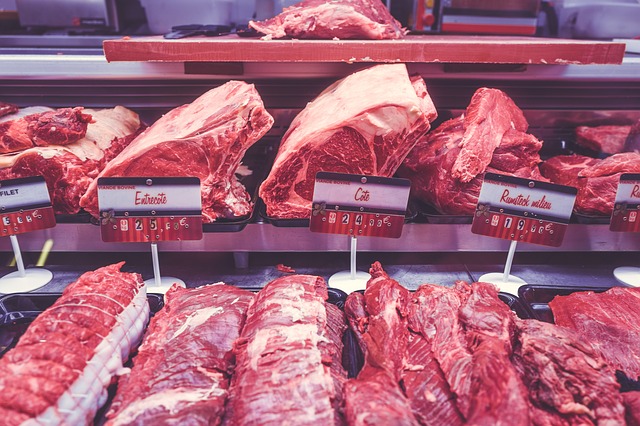What diet types contribute to depression and anxiety?
/I am reluctant to write this post. I’m sure I’m going to make a few people mad. In last month’s Connectors Meeting there were questions about how different diet types contribute to mental health concerns. When a person's diet choice restricts food categories, they can find over time that their diet is contributing to increased anxiety and depression. This is because a diet that limits food groups can lead to nutrient deficiencies if health metrics are not carefully monitored through diagnostic labs.
In this post I’ll review some things to watch out for when eating significant amounts of highly processed foods, following vegetarian or vegan diets, and keto/paleo/Atikins types of diets.
Highly Processed Food Diets
Diets high in processed foods have been shown to increase depression and anxiety. These are diets with lots of white foods (bread, rice, potatoes, pasta, muffins, bagels, chips, sweets, fast food). With this diet, when I look at an individual's labs what I typically see are deficiencies in nutrients that help to synthesize dopamine and serotonin. Common deficiencies are protein, B vitamins, magnesium, zinc, omega 3, Vitamin D3, and fiber. Additionally, there is increased inflammation as indicated by elevated C-reactive protein (CRP) levels. Inflammation contributes to depression, fatigue, bipolar, cardiovascular disease, dementia, and diabetes, to name a few concerns. Dr. Felice Jacka provides a whole body of research about the impact of diet on mental health. Here is her seminal paper: Association of Western and traditional diets with depression and anxiety in women.
Vegetarian/Vegan
When I see vegetarians and vegans in my office, they tend to be very anxious individuals and the anxiety often leads to depression. I’m not saying that all vegetarians and vegans struggle with anxiety and depression. Rather, that individuals who are anxious and depressed and vegetarian tend to have higher levels of anxiety and depression due to nutrient deficiencies. Their anxiety is often caused by fluctuations in blood sugar levels because of the low carbohydrate to protein ratio in many of the foods they typically consume.
For example, let’s consider a bean burger. Beans have some protein and some carbohydrates. The bread is all carbohydrates. So this bean burgers contain a lot of carbs and not a lot of protein
Clinically, I have seen anxiety decrease significantly when we assure that they are getting enough protein throughout the day (8 grams per 20 pounds of body weight or at least 65 grams divided throughout the day for anyone over 140 lbs.)
There is a large body of research that suggests vegetarians have better physical health then omnivores. Vegetarians tend to have lower body mass index and cardiovascular disease. However, an Australian study with 9113 participants indicated that vegetarians and vegans have more anxiety and depression then omnivores.
Here are two more studies that may be of interest:
Vegetarian diet and mental disorders: results from a representative community survey
Food and Nutrient Intake and Nutritional Status of Finnish Vegans and Non-Vegetarians
For vegetarians, the labs that I carefully look at are total protein, Omega 3, ferritin (iron stores), B vitamins, and Vitamin D3. In my client base, vegetarians and vegans tend to carry less muscle mass and more fat mass.
For vegans, I will also look to see what their primary sources of fats are. The addition of coconut milk and oil can help with fatigue caused by a lack of cholesterol in their diet; consuming enough cholesterol is important because it helps synthesize hormones.
Keto/Paleo/Atkins
I am going to make a “no duh” statement… But it’s one we often forget: Weight does not determine health.
High-fat mass can impact health, but it’s not everything. I’m far more concerned about an individual's ability to be self-compassionate, eat primarily health-sustaining foods, engage in some level of regular movement or exercise, sleep well, and have healthy labs.
I have seen a number of individuals who started on a keto diet (low carbohydrate with high protein and high fat) to lose weight. However, after the initiation phase of just meat and fat, they did not add fruits or veggies back into their diets for years. They explain that primary reason for staying with this phase is because adding back fruits and veggies caused them to gain back the weight they had lost. This is true, because when we do quick weight loss programs it’s hard to not do quick weight gain as well. However, there are some serious health consequences not eating fruits and vegetables.
One of the consequences is that they became very low in B vitamins and Vitamin K. For women following this type of dietary restrictions, they started having heavy menses because their blood was not clotting well. This then also led to iron deficiency, which contributed to their story of depression/fatigue.
Check out these articles:
In conclusion
Diets that support physical health do not always support mental health. Diets that are low in nutrient dense foods can contribute to mental health concerns through presentation of depression/fatigue and hypoglycemia/anxiety. When someone is considering medications or has tried medicines without the expected positive impact, it’s worth suggesting that they ask their primary care providers for a laboratory workup for fatigue. Going to a naturopathic physician, nutritionist, or acupuncturist to have their diet evaluated for deficiencies that could be contributing to their mental health status is also a good option.
Here are some additional resources:







